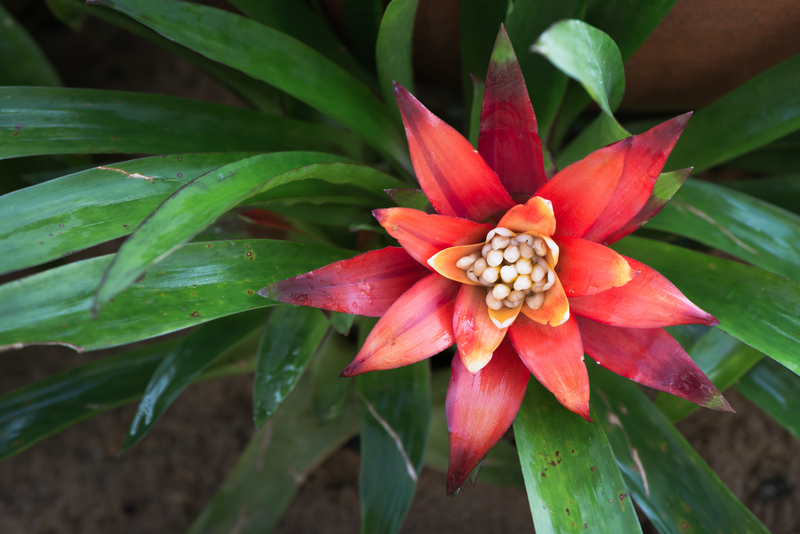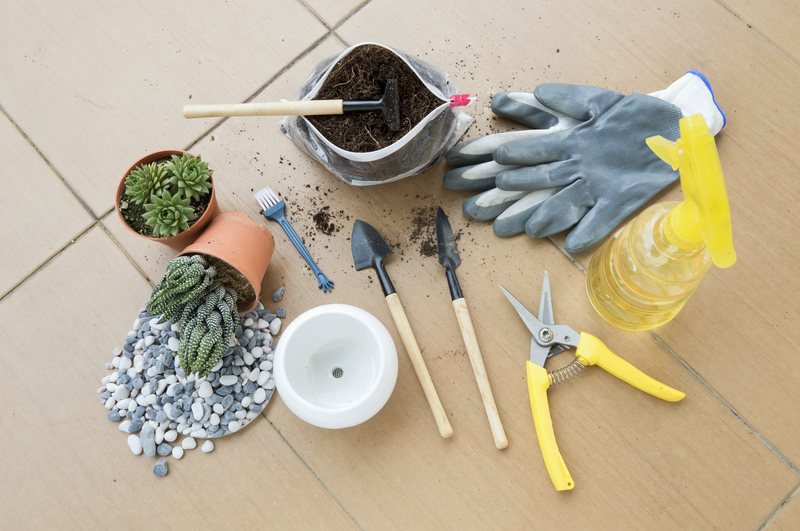Bring Life to Dark Corners with Resilient Shade Climbers
Posted on 17/06/2025
Bring Life to Dark Corners with Resilient Shade Climbers
Creating a lush and welcoming environment in your garden or home can be a rewarding task, but what happens when you have dark and shady corners that seem inhospitable to most plants? The solution is simpler than you might think: resilient shade climbers. These tenacious plants are specifically adapted to thrive in low-light conditions, bringing greenery and life to otherwise dreary spaces.
Why Choose Shade-Resistant Climbers?
Shade-resistant climbers are a versatile addition to any garden landscape. Their ability to thrive in partial to full shade allows them to beautify spaces where other plants may struggle. Here are some compelling reasons to incorporate these hardy climbers into your garden:
- Adaptability: Equipped to grow in lower light conditions, these plants don't demand constant sunshine to flourish.
- Vertical Growth: Ideal for small spaces, as they climb surfaces like walls, trellises, or fences, maximizing vertical areas.
- Reduced Maintenance: Many shade-tolerant climbers are also low-maintenance, requiring less water and attention.
- Ecological Benefits: These plants can support local wildlife, providing habitat and food sources for birds and insects.

Top Resilient Shade Climbers
Here are some popular and effective shade-tolerant climbing plants for your garden:
Ivy (Hedera)
Perhaps the most well-known shade-loving climber, ivy is robust and adaptable. It can efficiently cover large areas quickly, making it ideal for creating lush walls. Remember, while ivy is vigorous, it may require periodic pruning to keep it in check.
Climbing Hydrangea (Hydrangea petiolaris)
Climbing hydrangea is adored for its beautiful white flowers and attractive bark. It grows slowly but steadily, clinging to surfaces with aerial roots. Perfect for completely shady areas, it will turn a dull wall into a green tapestry adorned with delicate blossoms.
Virginia Creeper (Parthenocissus quinquefolia)
The Virginia creeper is a hardy vine known for its vibrant foliage, which changes color with the seasons--from lush greens to fiery reds in the autumn. It's highly adaptable and can thrive even in the most shaded garden spots.
Clematis (Clematis spp.)
Clematis varieties vary in their light requirements, but several types are suitable for shade. Known for their stunning flowers, these climbers add a pop of color and elegance to any shadowed space. Consider varieties like Clematis alpina or Clematis montana for shaded areas.
How to Plant and Care for Shade Climbers
The success of your shade climbers depends on proper planting and care. Follow these guidelines to ensure they flourish:
Site Selection and Preparation
Identify the right location for planting your shade climbers. Ensure there is adequate support for climbing, such as a trellis, fence, or arbor. Prepare the soil by enriching it with organic matter to enhance fertility and drainage.
Planting Techniques
- Dig a hole that's twice the width of the root ball but no deeper than the root ball's height.
- Place the plant, ensuring the root ball is level with the soil surface.
- Backfill with soil and tamp down gently to eliminate air pockets.
Watering and Fertilization
Even though these plants are resilient, adequate water is essential for establishing deep roots. Water them regularly during their first growing season. Additionally, apply a general-purpose fertilizer in spring to boost growth and flowering.
Pruning and Maintenance
Pruning is crucial to manage growth and stimulate robust flowering. Some shade climbers might need minimal pruning, while others may require annual trims. Always use clean sharp tools and prune according to the specific plant type.

Innovative Ideas to Use Shade Climbers
Don't underestimate the impact of shade climbers in design. Here are creative ways to utilize them in your landscape:
Vertical Gardens
Transform bare walls or fences into living murals. Use climbers to create vertical gardens that offer privacy and aesthetic appeal.
Shade and Shelter
Create natural canopies by training climbers over pergolas or gazebos. This offers refreshing shade and a serene space for relaxing outdoors.
Feature Focal Points
Use shade climbers as a focal point by training them on standalone structures or arches. This adds drama and highlights specific garden spots.
Conclusion
Resilient shade climbers provide a unique opportunity to beautify your garden's dark corners. By selecting the right plants and maintaining them with proper care, you can transform any shady area into a vibrant oasis of greenery and charm. Consider incorporating these hardy climbers to add depth, texture, and liveliness to your garden landscape.
Latest Posts
Top Picks: Must-Have Gear for Garden Enthusiasts
Garden Your Way to a Healthier Planet and Reduce Climate Change
Unveiling the secrets of container gardening

